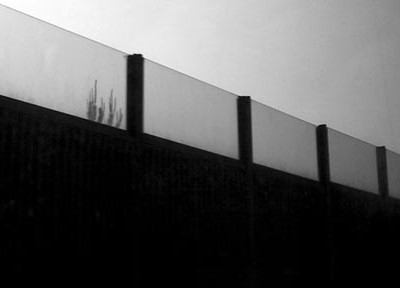Eleven days after my husband died, he telephoned me at dawn.
“I can barely hear you,” I said, sitting up in bed.
“Somewhere in Siberia,” he whispered.
His notebook was still on his side of the bed. I wrote in the half-light. The directions were incredibly complicated. I had to ask him to repeat himself several times, so soft was his voice.
“Speak up.”
“I’m sorry,” he said. “Feeling a little weak. So after the fifth logging road, go ten more miles, there’s a lake with red stones on its bank.”
He hadn’t a passport, of course. He hadn’t any clothes.
Daylight advanced. My notes were mostly legible. I rode the train to the city and wandered the alleys behind the shopping centre, drinking Red Bulls. An African boy wearing diamond earrings sold me a passport and a carton of cigarettes.
In Siberia everything smelled of sunflower seeds and incense. No one looked at me. I paid a smoky man to drive me into the forest as far as the roads allowed, which wasn’t far at all. He seemed to drive with his eyes closed. When the mud grew too deep, the tangerine-bright car stopped at a power station and I continued on foot. So dense were the trees that I couldn’t tell when daylight ended or began. Which was just as well, as I didn’t wish to consider the passage of time.
After several days or weeks, the forest cleared, the road rounded a lake, and I came upon an inn.
“I’ve got no clothes,” my husband reminded me. He reclined in a mess of white sheets under the lobby’s chandelier. His hair had changed from chestnut-silver into a fine blond floss. His chest rattled with each breath.
He winced when I hugged him but smiled patiently.
“Get up,” I said. “I’ve got your passport.” It was at the bottom of my rucksack, under the peanut butter sandwiches and vitamin tonics. “Get up.”
I tried very hard to be patient with him as we walked through the woods. He was cold in his sheet, which he’d wrapped around his person like a primitive toga. Though he looked healthy and strong he took forever, pausing fearfully at even the smallest streams.
“Should I carry you?” I said once, watching him pick his way down a hill. I regretted my tone as soon as I saw his face, his bewildered smile.
I did carry him on my back, for as long as I could manage.
We found the tangerine car idling at the power station. The driver rubbed his face and took us back to the city. The airport was a glass labyrinth. No one understood my attempts to speak Russian, or perhaps they were just ignoring me. Our plane was due to take off in seven minutes.
“Why are there no gates listed?” I stormed.
“Quite like to rest for a moment,” said my husband.
“There’s a sign that says International. Way down at the other end of the terminal. Come on.”
“Maybe a cup of tea.”
I handed him his passport. “Keep me in your sight. Keep moving.”
I saw our gate, with its arch of guttering green neon. An eyeless boy in a black rubber uniform stood sentry. I waved at him and began to run. I had only to reach the gate in time; then I would wedge my hips in the door frame and force them all to wait until my husband came shuffling along.
It couldn’t have been possible that all the people were eyeless. I pushed them out of my way as I ran–whey-faced old ladies, children, youths. They tumbled helplessly, heads knocking against the concrete floor. You might think I wouldn’t care, would scarcely notice, but their whispered protests made me wretched with shame.
The eyeless boy was gone. The neon archway hissed and went dark. The metal door was shut but I pulled at the handle with all my strength, wrenching it open.
I turned and looked for my husband. I couldn’t see him but I knew my voice would carry under the dirty glass. “It’s time. It’s time. It’s time.”
When I turned back to the door I found it opened to a whistling darkness. I peered down till my eyes tingled. It couldn’t be looked at. I’d go blind.
L.E. Butler is an American-born novelist living in West Yorkshire. Her first novel Relief was published in 2008. Her second, Psyche’s Torch, is with an agent and seeking a publisher. When she’s not writing, she works in a refugee law centre.

